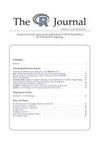Identifying Counterfactual Queries with the R Package cfid
IF 1.1
4区 计算机科学
Q3 COMPUTER SCIENCE, INTERDISCIPLINARY APPLICATIONS
引用次数: 1
Abstract
In the framework of structural causal models, counterfactual queries describe events that concern multiple alternative states of the system under study. Counterfactual queries often take the form of "what if" type questions such as "would an applicant have been hired if they had over 10 years of experience, when in reality they only had 5 years of experience?" Such questions and counterfactual inference in general are crucial, for example when addressing the problem of fairness in decision-making. Because counterfactual events contain contradictory states of the world, it is impossible to conduct a randomized experiment to address them without making several restrictive assumptions. However, it is sometimes possible to identify such queries from observational and experimental data by representing the system under study as a causal model, and the available data as symbolic probability distributions. @shpitser2007 constructed two algorithms, called ID\* and IDC\*, for identifying counterfactual queries and conditional counterfactual queries, respectively. These two algorithms are analogous to the ID and IDC algorithms by @shpitser2006id [@shpitser2006idc] for identification of interventional distributions, which were implemented in R by @tikka2017 in the causaleffect package. We present the R package [cfid](https://CRAN.R-project.org/package=cfid) that implements the ID\* and IDC\* algorithms. Identification of counterfactual queries and the features of cfid are demonstrated via examples.用R包识别反事实查询
在结构因果模型的框架中,反事实查询描述了涉及所研究系统的多个可选状态的事件。反事实问题通常以“如果”类型的问题的形式出现,比如“如果一个应聘者有超过10年的工作经验,而实际上他只有5年的工作经验,他还会被录用吗?”这些问题和反事实推理通常是至关重要的,例如在处理决策公平性问题时。因为反事实事件包含了世界的矛盾状态,如果不做一些限制性假设,就不可能进行随机实验来解决它们。然而,有时可以通过将所研究的系统表示为因果模型,并将可用数据表示为符号概率分布,从而从观测和实验数据中识别出此类查询。@shpitser2007构建了两个算法,分别称为ID\*和IDC\*,用于识别反事实查询和条件反事实查询。这两种算法类似于@shpitser2006id [@shpitser2006idc]用于识别介入分布的ID和IDC算法,在R中由@tikka2017在因果包中实现。我们给出了R包[cfid](https://CRAN.R-project.org/package=cfid),它实现了ID\*和IDC\*算法。通过实例说明了反事实查询的识别和cfd的特点。
本文章由计算机程序翻译,如有差异,请以英文原文为准。
求助全文
约1分钟内获得全文
求助全文
来源期刊

R Journal
COMPUTER SCIENCE, INTERDISCIPLINARY APPLICATIONS-STATISTICS & PROBABILITY
CiteScore
2.70
自引率
0.00%
发文量
40
审稿时长
>12 weeks
期刊介绍:
The R Journal is the open access, refereed journal of the R project for statistical computing. It features short to medium length articles covering topics that should be of interest to users or developers of R.
The R Journal intends to reach a wide audience and have a thorough review process. Papers are expected to be reasonably short, clearly written, not too technical, and of course focused on R. Authors of refereed articles should take care to:
- put their contribution in context, in particular discuss related R functions or packages;
- explain the motivation for their contribution;
- provide code examples that are reproducible.
 求助内容:
求助内容: 应助结果提醒方式:
应助结果提醒方式:


